Get a comprehensive guide on open sopen surgery vs laparoscopic surgery in order to get a better surgical approach
- sana101
- sana101
- November 22, 2023
- 2:37 pm
“Acquire the knowledge of open surgery vs laparoscopic surgery.”
Maybe one day you will end up diagnosed with a certain health condition that requires a surgical procedure. You have two options available such as open surgery vs laparoscopic surgery. So, which one would you go for? Well, you can’t make a fair choice without knowing the benefits and risks involved in both of these surgery methods. Although the procedure of surgery varies from patient to patient, according to the health condition of a patient and the severity of the disease. Most of the time your doctor will suggest you the best procedure. But this comprehensive blog will also be really helpful if you want to learn more about these two kinds of surgery, their procedure, and their pros and cons. Whether in terms of scars, post-op pain and many other factors. Click here
Quick information in this blog
Let’s explore the two major types of surgery; open surgery vs laparoscopic surgery and their pros and cons
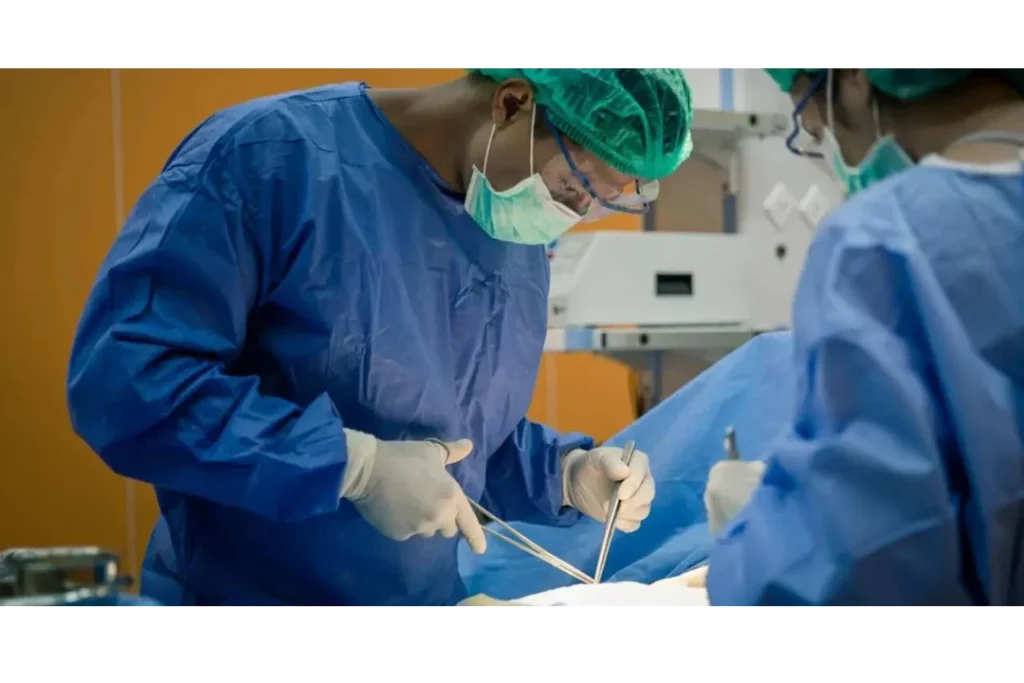
There are two major types of surgery; open surgery and laparoscopic. Let’s move forward and learn what are these, what are their procedures and what are their pros and cons.
What is open surgery?
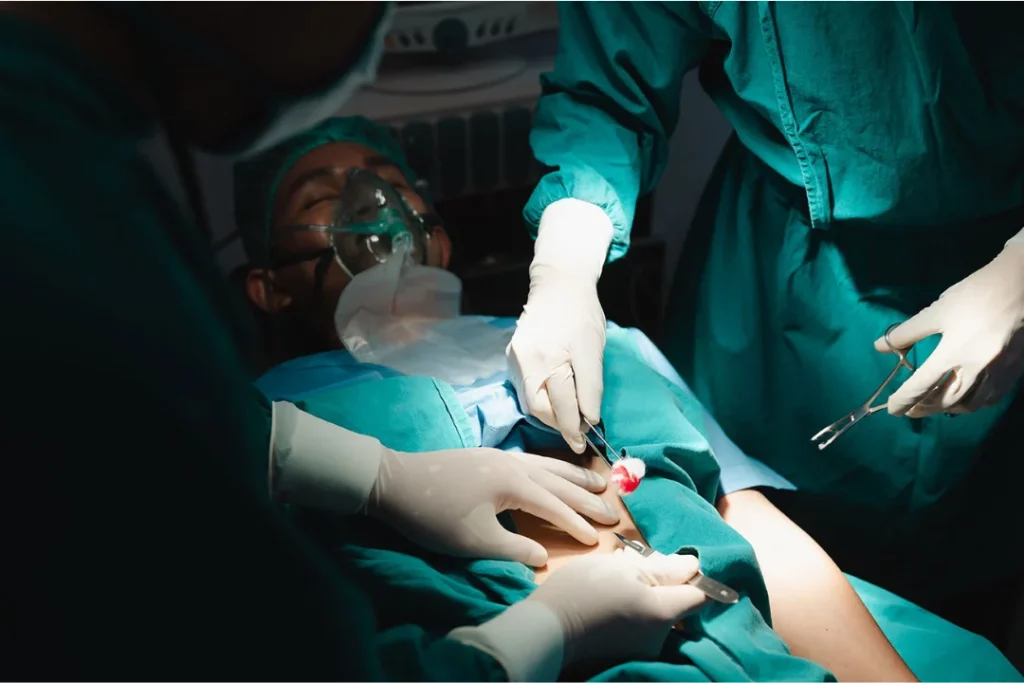
Open surgery is a traditional method of surgery in which a surgeon makes an incision with a scalpel in order to get access to the affected organ. The incision can be small from 3 to 4 inches or larger up to 10 inches according to the requirements of the surgery.The tools used in this kind of surgery are specially designed which help in the removal of an organ or part of it, to cut through tissues, to suture tissue, and so on.
What is laparoscopic?
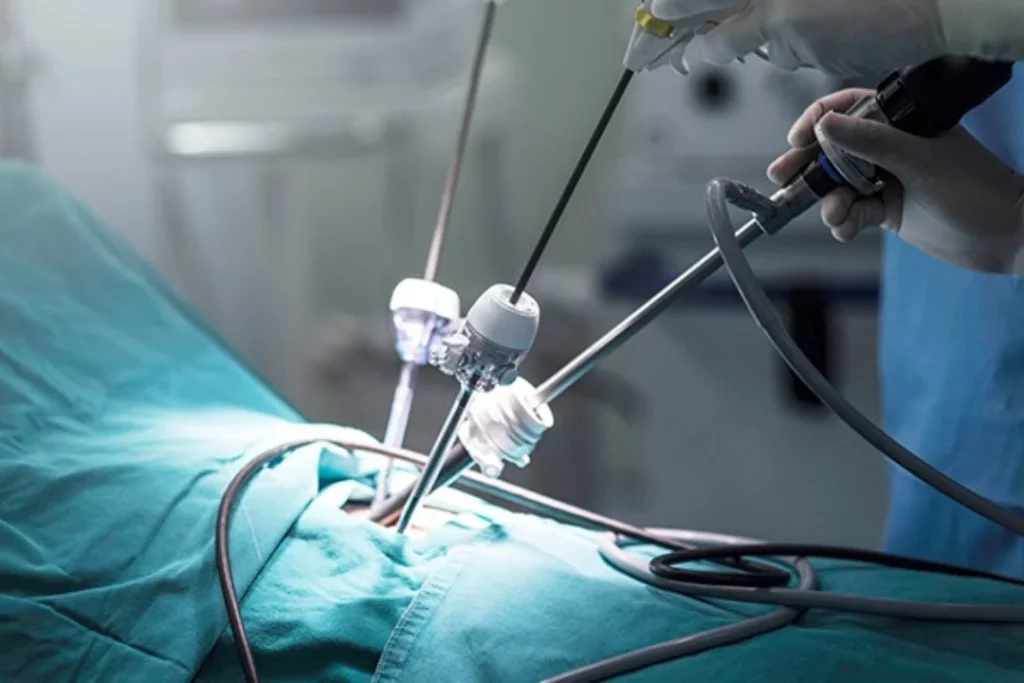
Laparoscopic is an advanced type of surgery where a surgeon makes a small incision. After making an incision the next tool which is required is called Trocar. It is a surgical instrument having a three-sided cutting point enclosed in a tube, used for withdrawing fluid from a body cavity. Another tool which is used in this surgery is a tube through which gas is pumped into the abdomen which helps the surgeon in fixing the space more effectively. One more tool that is used in this procedure is a laparoscope. It is a long and narrow tool with the help of which a surgeon is able to manipulate and suture the tissues.
Pros and cons of open surgery
Pros:
Clear view
In open surgery, surgeons have direct access to the organs which gives them a better visualization.
Manual Dexterity
Due to the direct handling of organs and tissues, this procedure offers greater maneuverability and precision.
Versatility
Open surgery is more versatile than laparoscopic. It is suitable for complex cases where laparoscopic methods aren’t feasible.
Cons:
Larger incisions
Compared to the laparoscopic method, in open surgery incisions are larger, resulting in more pain, more significant scars, and more time for recovery.
Higher risk of infection
As we know open wounds are more prone to infection as compared to minimal incisive techniques so in open surgery the risk of infection is much higher than that of laparoscopic.
Prolonged recovery
In open surgery, your stay in the hospital is longer than in a laparoscopic procedure. For recovery, it also takes much more time in contrast to laparoscopic.
Great loss of blood
Due to the large incisions in open surgery, the risk of the loss of blood is much higher than that of laparoscopic.
Pros and cons of laparoscopic
Pros:
Smaller incisions
In opposition to open surgery, laparoscopic requires smaller incisions, through which a trocar is inserted. So having smaller incisions, results in minimal scarring and lesser risk of wound infection.
Faster recovery
As mentioned above, laparoscopic incisions are smaller so after undergoing this procedure, the patients stay in the hospital for less time and they get fast and quick recovery as compared to open surgery.
Less pain
Small incisions, cause less tissue trauma, resulting in less postoperative pain and discomfort.
Less blood loss
Laparoscopic surgeries tend to less blood loss as it has smaller incisions and use special techniques to minimize the bleeding.
Cons:
Limited visibility
In laparoscopic, due to the usage of cameras and instruments, surgeons have limited visibility which can cause some challenging situations.
Technical expertise
Laparoscopic requires specialized training for the usage of instruments and for precise hand-eye coordination.
Cost of equipments
As said before, in laparoscopic surgeries special equipment is used, so it can increase the overall cost of the surgery.
Surgeries are performed through laparoscopic procedures
In this era of advancement and technology, many common surgeries are performed through laparoscopic procedures, because of its benefits and improved patient results. There are some surgeries that are done through this procedure.
- Biopsies
- Hernia repair surgery
- Gastric bypass
- Ectopic pregnancy removal
- Removal of small tumors
- Removal of stones
- Cholecystectomy
- Appendectomy
- Colectomy
In some surgeries, open surgery is a preferred choice
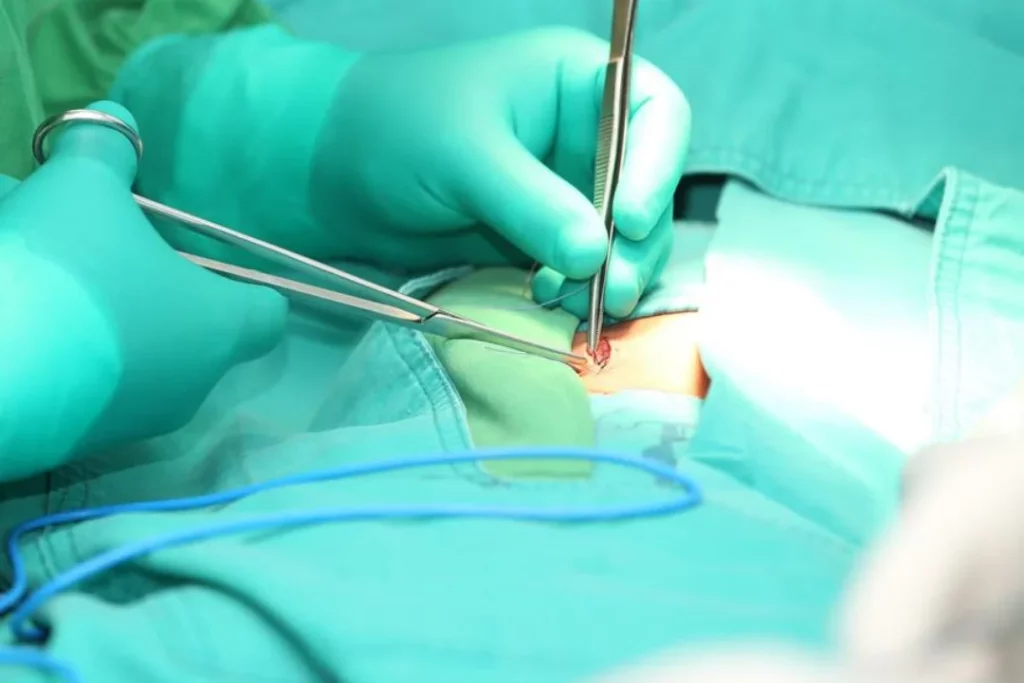
Several kinds of surgeries demand access to a larger area, such as in order to insert something like a stent or in the transplantation of an organ, for instance, a heart, kidney, or liver transplant. In such cases, open surgery is always a preferred choice because only open surgery provides direct access to the organs and more visibility.
Conclusion
To summarize on open surgery vs laparoscopic surgery, I would say that both procedures have their own respective pros and cons. Many surgeries can be performed through laparoscopes such as to remove stones, tumors, and appendix, and so on. But in some cases, open surgery is always preferred. Furthermore, open surgery is an ideal choice for chronic diseases and in it the risk of affecting other organs is low. Although a doctor is the most reliable source of information your own research can help you to get familiar with this topic in a better way and move towards the process with a more relaxed and open state of mind.
FREQUENTLY ASKED QUESTIONS
Is laparoscopy risky?
There are some possible complications in laparoscopy such as bleeding from the incision, injury to the other organs, and carbon dioxide entering other places rather than the abdomen. But these are very rare cases. in fact, it’s safer than open surgery.
How many surgeries are laparoscopic?
According to research over 13 million laparoscopic surgeries are performed globally every year.
Is laparoscopic surgery suitable for everyone?
No, laparoscopic isn’t suitable for all patients. It varies from patient to patient according to their medical health and specific condition.
Like this article?

Gynecology Problems
A Thorough Deep Dive into the Breadth of Gynecology Problems Involving the Ovaries, Uterus, Vagina and More “Get an extensive knowledge of gynecology problems and
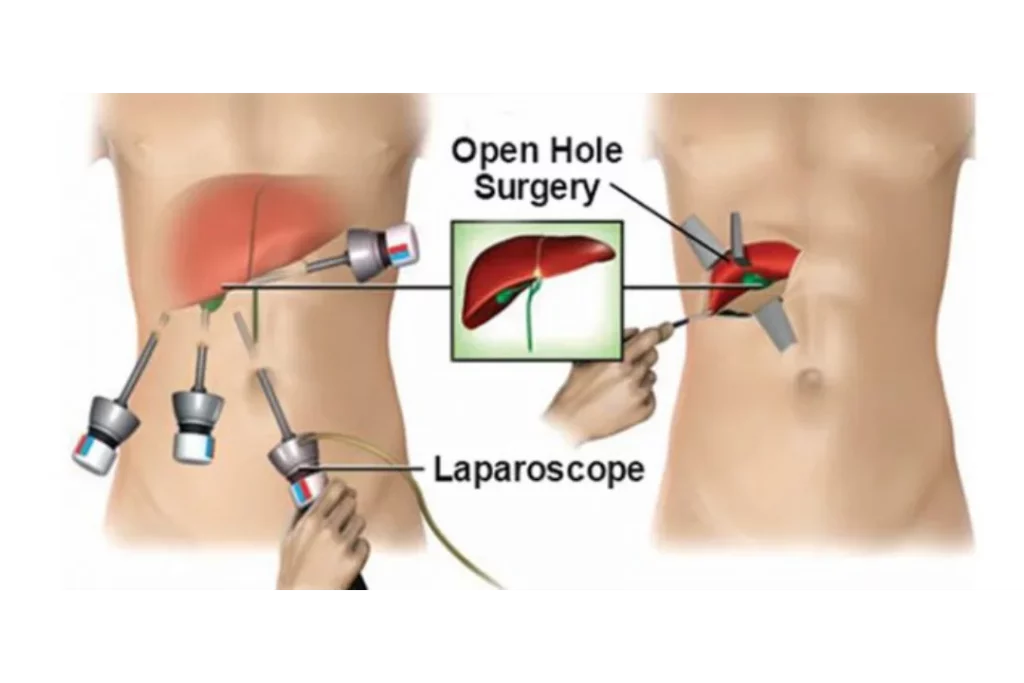
Open Surgery VS Laparoscopic Surgery
Get a comprehensive guide on open sopen surgery vs laparoscopic surgery in order to get a better surgical approach “Acquire the knowledge of open surgery

Best Exercise during Pregnancy
Best Exercise during Pregnancy: Your Path to a Healthier You! “Best Exercise During Pregnancy: Empowering Moms, Nurturing Babies!” Pregnancy is a transformative journey that brings

Benefits of Normal Delivery
Choose Wisely: 9 Benefits of Normal Delivery Over C Section “Have you ever paused to ponder the extraordinary journey of bringing a new life into

Benefits Of Breastfeeding
What Are The Benefits Of Breastfeeding For Both Mother And Child? Uncover Its Magical Advantages And Protection It Offers From Life Threatening Diseases “Every expecting

Best Food for Early Pregnancy
Discover The Best Food for Early Pregnancy – You Can’t Afford to Miss! “Pregnancy is a miraculous journey filled with excitement, anticipation, and many physical


